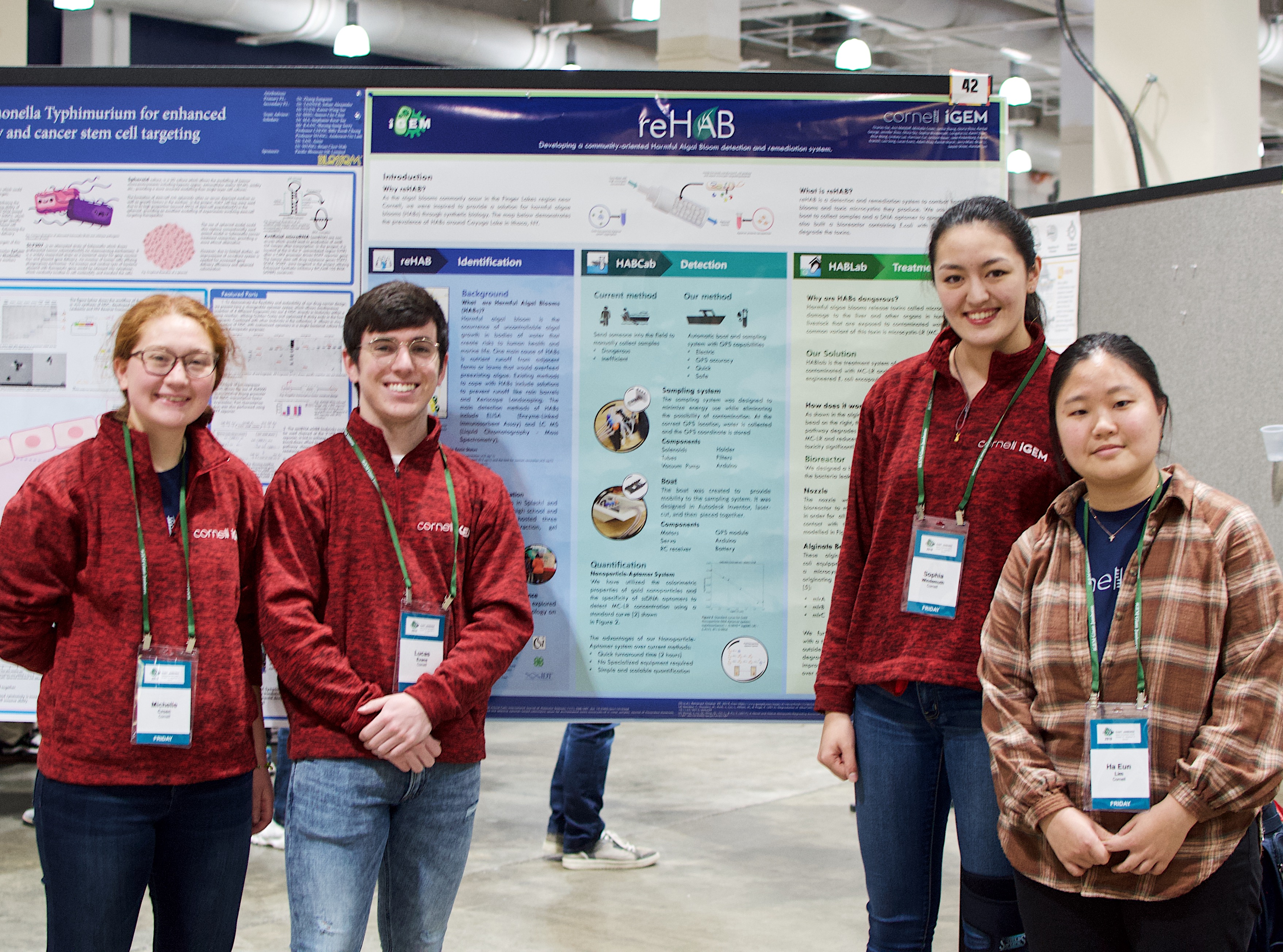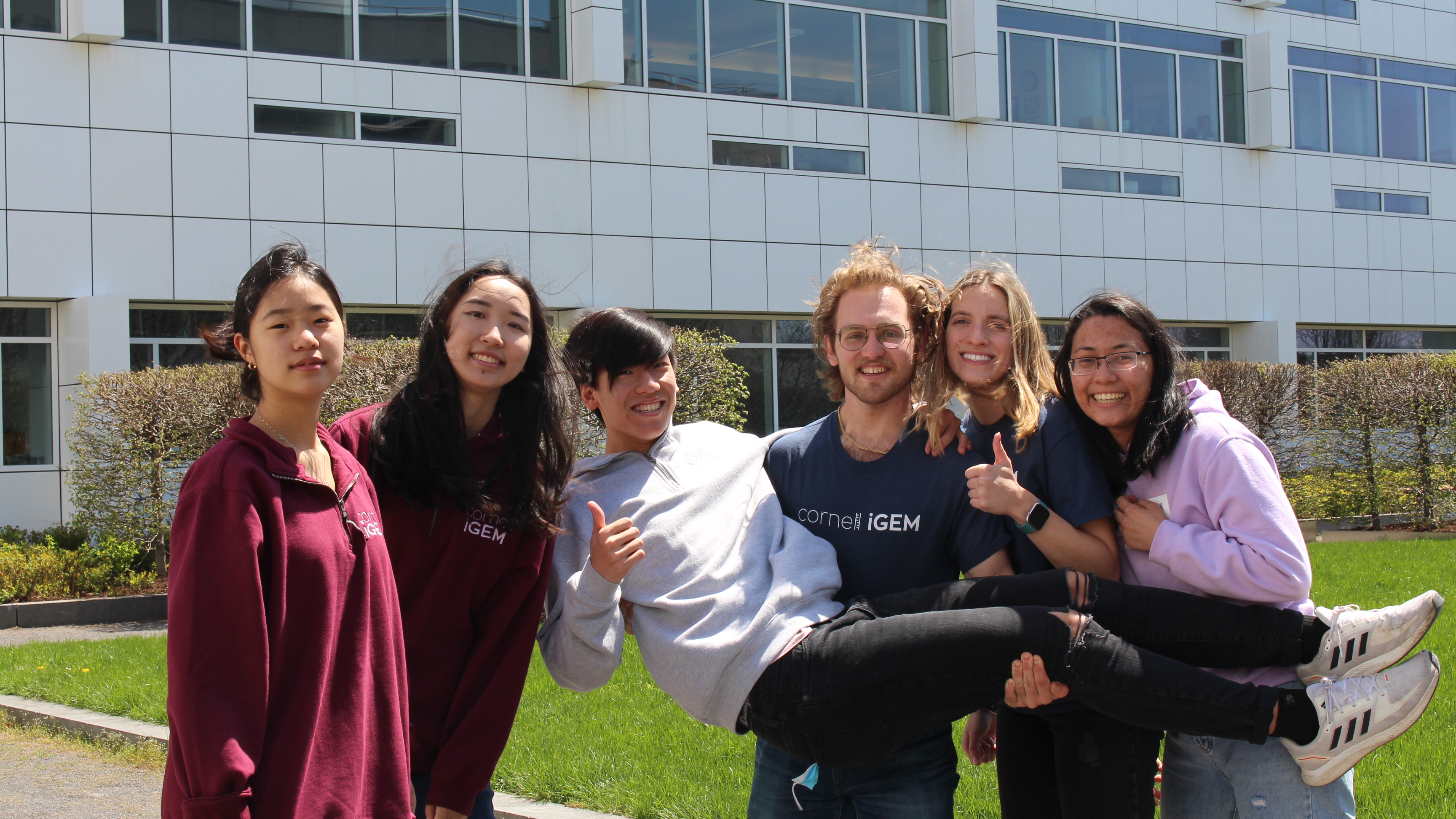

The Cornell iGEM Project Team is an award-winning synthetic biology research team of 50 undergraduate students. The team comprises five subteams: Wet Lab, Product Development, Policy and Practices, Business, and Wiki/Design. The team works throughout the school year and summer to solve local and global problems related to medical applications, environmental concerns, and human and animal health. We compete against 300+ multidisciplinary teams from all around the world at the iGEM Grand Jamboree, hosted annually by the International Genetically Engineered Machine (iGEM) Foundation.
Synthetic biology is the field in which scientists redesign and repurpose machinery naturally found in the biological world to achieve a man-driven goal. Some famous examples of synthetic biology that have changed the world as we know it:

The Grand Jamboree is the annual competition hosted by the iGEM foundation during which hundreds of teams from around the globe gather to present their projects, network with other teams and companies, and learn more about the field of synthetic biology. It is made up of multiple different events spanning the course of four days. Everything is bookended by the opening and closing ceremonies. In between these ceremonies, some activities you might find are project presentation sessions, poster sessions and workshops, along with other special events such as a career fair or a start-up showcase. In addition to participating in these activities and speaking with other teams, you also get the chance to meet representatives from sponsor companies and talk with them as well.
The Grand Jamboree means a lot to iGEM, but not just for the reason that it is our chance to show off our impressive work that we do annually. The Grand Jamboree is also a tremendous opportunity for team bonding and camaraderie. Each year after the Grand Jamboree ends and iGEM members head back from Paris to Ithaca, everyone leaves feeling as if they have gotten closer to the people around them.

The Wet Lab subteam is primarily responsible for the design, construction, and validation of the varying biological and genetic components of our project. Our work centers around using synthetic biology techniques, such as PCR, Western blot, Gibson assembly, and bacterial transformation, to assemble our genetic circuits. Beyond construct design and benchwork, the team plays a pivotal role in employing computational methods to model biological pathways to accurately predict system behavior, providing further validation and insight for experimental design. Our team also works closely with our other subteams to ensure biological feasibility that aligns with real-world applicability, ethical consideration, and potential for scalability to maximize the impact of our engineered solutions.
This year's project focuses on developing a microbial co-culture system for Martian regolith remediation, targeting the high perchlorate toxicity and salt concentration. Our system consists of three primary stages: 1.) Engineering and characterization of E. coli to express key perchlorate reduction proteins (pcrA and pcrB) 2.) Cultivation and optimization of Synechococcus sp. PCC 7002, which naturally uptakes chloride byproducts from the perchlorate reduction process and recycles organic carbon through sucrose secretion 3.) Development of the co-culture growth chamber in collaboration with the Product Development subteam to support the growth of both organisms under controlled environmental conditions. This closed system is engineered to ensure optimal parameters for microbial activity are maintained for efficient perchlorate and salt remediation in simulated Martian soil.